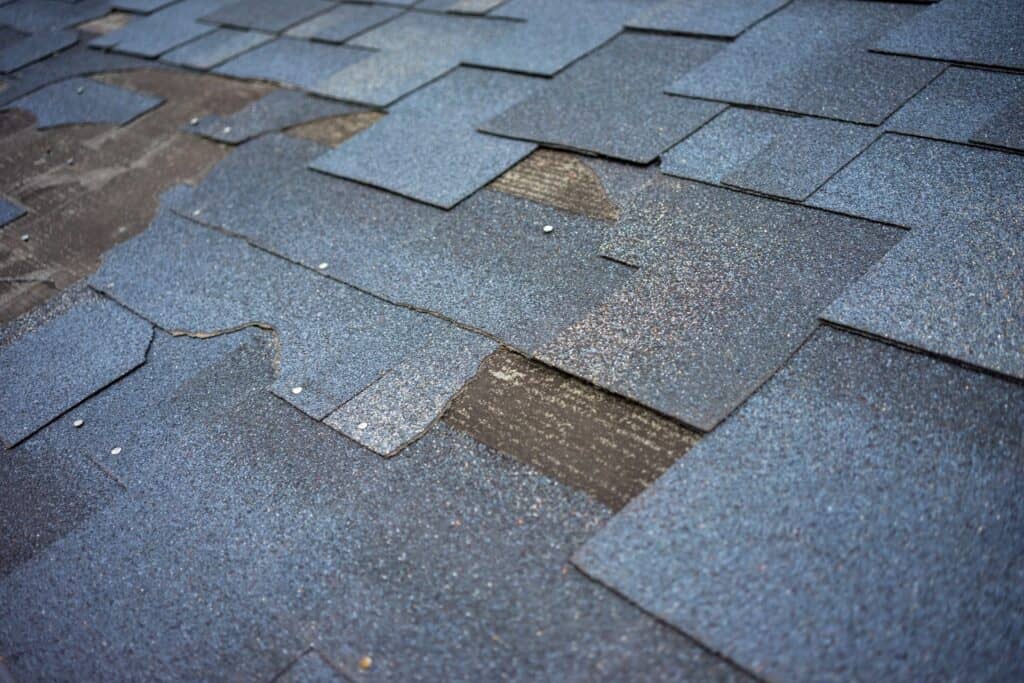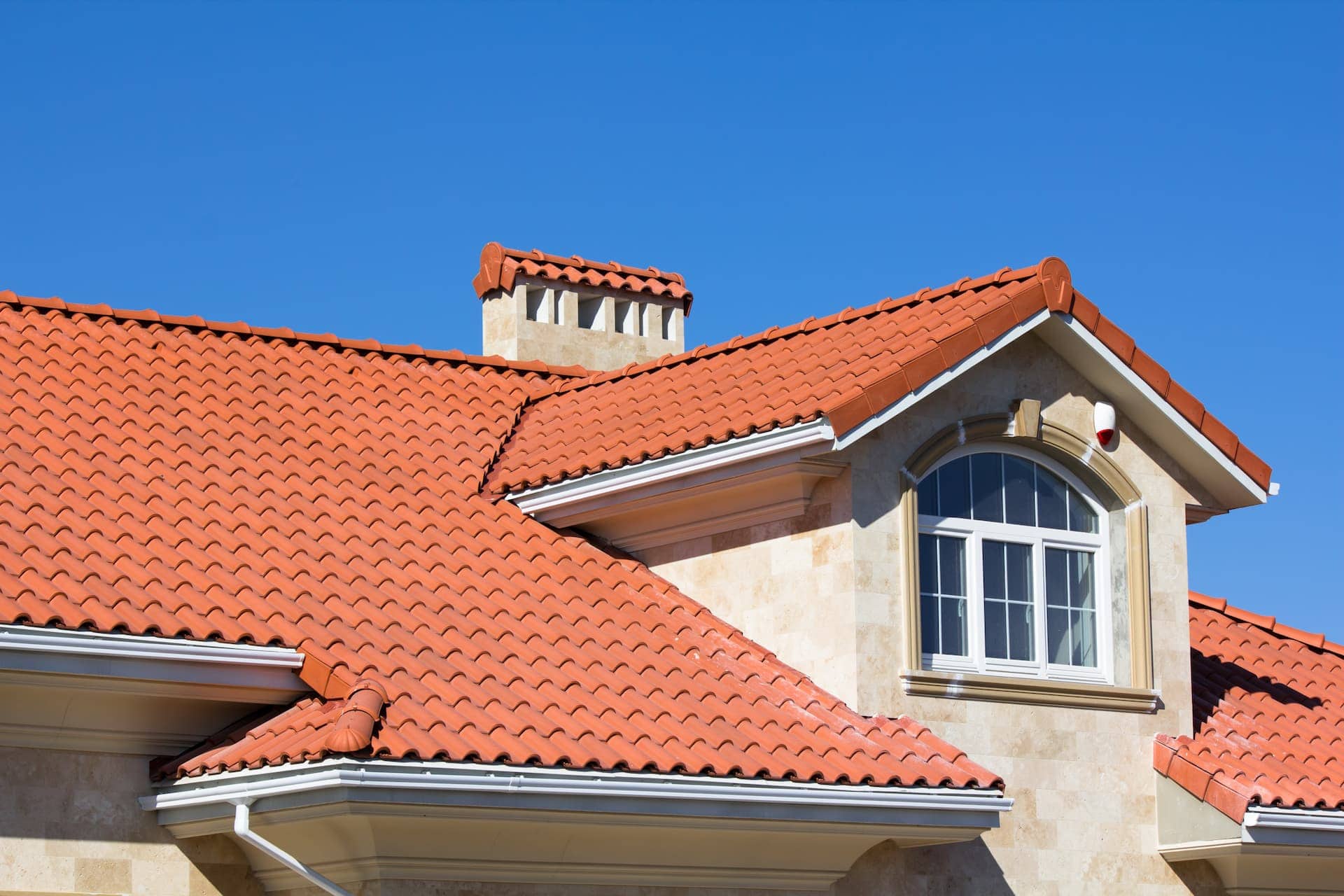How Much Does a Roof Replacement Cost in Florida?
In Florida, roof replacement costs commonly range from $10,000 to $20,000 but, Florida is different from many states so roofing costs are influenced by wind codes, storm, material requirements, permit rules, and high post-storm demand. That means “national averages” often don’t match Florida roof replacement cost.
What’s the average Roof Replacement Cost in Florida?
In Florida, roof replacement costs commonly range from $10,000 to $20,000 for shingle roofs, but price varies based on roof size, pitch, complexity, material selection, and whether repairs to decking or flashing are required. With RoofClaim you will get the exact help you are looking for in Florida staring with free roof inspection to know the early signs of roof damage.
Note: RoofClaim has completed thousands of roof replacements across Florida, helping Florida homeowners navigate roof insurance claims after storms and hurricanes.
Do You Know? Metal and tile roofs typically cost more than shingles due to material and labor requirements.
Click the link to schedule a FREE INSPECTION and get the estimate for your roof replacement.
When do you need a full Roof Replacement?

In many cases, the need for a roof replacement is obvious. Maybe you have bad roof leaks or visible damage. Maybe you just went through a bad storm with hail and powerful winds that caused glaring issues.
This isn’t always the case, though. Very often we do roof inspections where the homeowner had no idea their roof was in such bad shape. We submit our findings to the insurance company and the homeowner is typically approved for a brand new roof, fully covered by their policy.
Here are some signs that your roof needs roof replacement:
| Topic | Short Details |
|---|---|
| Roof lifespan | different for different roof material—15 to 50+ years. |
| Insurance | Old roofs are not covered but roof damaged by storm may be. |
| Physical damage | Curled, cracked, or missing shingles; rusted flashings. |
| Water damage | Stains or moisture in attic or on ceiling leads to mold and pests. |
| Sagging roof | Structural weakness due to trapped water for long period. |
| Moss & mold | Grow from moisture, lead to cracks and also attract pests. |
Detailed description:
Worn Out Roof
No roof can last forever, regardless of its material. Metal roofs, tiles, shingles, and wood have unique life expectancies and wear out over time. For instance, high-quality roofing materials and installations in Florida may last more than 50 years. However, other roofing materials may only last 15 years.
One important point to note here is that most insurance doesn’t cover roof replacements simply because your roof is old and worn out. For this reason, we recommend getting regular roof inspections after any major storm. If we find storm damage, this is usually covered by your policy, so you may decide at that point to file a roof claim.
Physical Damages on Your Roof
Doing regular inspections can help you stay informed of exterior damages on your roof. You may see curled-up or warped shingles that may come off easily in the presence of strong winds. They may also exhibit cracked spots and missing pieces that not only can harm your roof’s aesthetic but also can contribute to bad leaks.
Make sure you look at all areas that are prone to damage from the sun and rain, such as your roof's slopes, valleys, and gutters. Rusty flashings are another common sign of roofing trouble.
When you’re checking your roof, we always recommend staying on the ground and observing whatever is visible. Do not attempt to go up on your roof and perform an inspection yourself. Always leave that type of roof inspection to experts (it’s free with RoofClaim, so there’s no cost to you).
Water Damage in Your Attic
Water damage in your attic or other areas can wreak havoc and typically signals the need for a full roof replacement. Once you see moisture marks and brownish-yellow stains, things have likely been troublesome for a while.
Don’t let issues like this fester. Trapped water that is not remediated can attract pests, mosquitoes, and other insects to your attic while creating conditions where mold thrives.
A Sagging Area of Your Roof
A more extreme sign of water damage on your roof is sagging. If your decking looks saggy, that may mean your roof's structural support is weakening because of the trapped moisture on it.
A sagging roof is a pretty significant issue that warrants calling for an inspection immediately.
Mosses and Mold on Roof
Water on clogged gutters and missing roof pieces can encourage molds and mosses to thrive on your roof. You wouldn't want that because they can damage your roofing material and lead to cracks and leaks. They can also host other pests and insects that could eat away your roof boards.
What factors influence the cost of a roof replacement in Florida?
Material, Home size, roof shape and etc. With RoofClaim free roof inspection you can get the clear idea about your roof. Claim your free roof inspection Florida.
| Driver | Why It Matters |
|---|---|
| Material Type | Shingles are cheapest; metal, tile, and designer materials cost more |
| Home Size / Roof Area | More square footage = more materials and labor |
| Roof Shape & Complexity | Multiple valleys, dormers, hips = more waste, more labor |
| Roof Pitch / Steepness | Steeper roofs take more time and safety measures |
| Labor Market & Local Rates | Labor costs vary across Florida (Tampa, Miami, Panhandle) |
| Permit & Wind Code Requirements | Florida’s building codes and hurricane zones may force upgrades |
| Hidden / Structural Damage | Rotten decking, framing issues add surprise costs |
| Tear-Off / Disposal Fees | Removing and hauling off old roofing adds to the bill |
| Material Market Fluctuations | After storms, supply shortages can spike prices |
Tip: A simple roof in a less hurricane-prone part of Florida could cost less , but a complex roof in a high wind zone will cost much more.
Florida roof cost ranges by material
In Florida, roof replacement costs typically range from $10,000 to $20,000+, depending on material, roof size, and yes installation complexity.
| Roofing Material | Average Florida Roof Cost | Key Details |
|---|---|---|
| Asphalt Shingles | $10,000–$20,000+ | Most affordable option. Pricing depends on roof size, pitch, and installation complexity. Common across Florida homes. |
| Metal Roofing | $25,000–$45,000+ | Higher upfront cost with long lifespan and strong wind resistance. Performs well in Florida’s storm-prone climate. |
| Tile Roofing | $30,000–$50,000+ | Premium material with higher labor costs. Chosen for durability, longevity, and classic Florida style. |
IMPORTANT: Exact pricing depends on your roof’s square footage, pitch, material, and hidden damage uncovered during tear-off.
What does Florida Roof Replacement Estimate Includes?
Florida roof replacement estimate is usually: Size of the roof + (Materials + Labor) + Tear-off/Disposal + Permits + Code Upgrades + Deck/Flashing Repairs (if needed)
This is why two neighbors can get very different quotes even with similar homes size.
How long does a roof last in Florida?
Roofs in Florida have different lifespans ranges from 20 to 50+ years, depending on weather and, storms.
| Roofing Material | Lifespan of Roof in Florida | Notes |
|---|---|---|
| Asphalt Shingles | 20–30 years | Proper installation and ventilation can extend roof life to 30 years as well. |
| Metal Roofing | 30–50+ years | Long-lasting material with strong performance when properly installed and maintained and yes inspected. |
| Tile Roofing | 30–50+ years | Highly durable and popular in Florida; life of tile roof depends on roof maintenance and structural support. |
How Insurance often covers Roof Replacement
Good news: many RoofClaim projects are approved and paid for by homeowners’ insurance. Typically:
- You file a claim (we help)
- Insurance sends an adjuster
- We compare their estimate to ours
- They approve it (or we supplement)
- You pay your deductible, and the insurance covers the rest
That means your actual out-of-pocket cost might be much lower than the headline figure. Always check your deductible and what your policy covers.
Insurance vs Out-of-Pocket Roof Replacement Cost in Florida
With Insurance Coverage
- Many Florida roof replacements are covered by homeowners insurance because to storms damages
- When approved, homeowners typically pay only their deductible, not the full replacement amount.
- In these cases, insurance may cover $10,000–$50,000+ depending on roof size and the roof material.
Paying Out of Pocket
If homeowner is doing the roof replacement due to age, wear and tear, or lack of storm damage, insurance usually does not cover.
Sadly, Homeowners pay the full replacement cost:Asphalt shingles: $10,000–$20,000+ and Metal roofing: $25,000–$45,000+
Frequently Asked Questions
Q: Does homeowners insurance cover roof replacement cost in Florida?
Storm or wind damage is commonly covered (minus your deductible), but wear and tear or age-related typically is not. Always read the roof policy and file quickly after damage.
Q: What is the average deductible for roof claims?
Many Florida policies have a percentage-based deductible (e.g., 2% or 5%). For example, on a $300,000 home, a 2% deductible means $6,000 is your share. Some policies use flat deductibles instead.
Q: Can I replace only part of my roof to save money?
You can, but mixing new and old materials often leads to leaks, mismatched appearance, and future costs. If you’re already dealing with major damage, full replacement usually offers better long-term value.
Q: How soon should I file after a storm?
As soon as possible, ideally within days. Delays can lead to further damage and can give insurers reason to deny or reduce claims.
Q: Do I need a roof permit in Florida?
In most counties, yes. Florida’s building codes (especially in hurricane zones) often mandate permits and inspections to ensure safety standards.
Q: What if the adjuster underestimates damage?
That happens. RoofClaim prepares detailed documentation and photos so we can submit supplemental claims to cover what was missed.
Next Step: Let RoofClaim Handle the Hard Part
Looking for the best roofers in Florida? All you need to do is schedule your free inspection. From that point on, RoofClaim will:
- Document the damage
- Help file the insurance claim
- Meet the adjuster on your behalf
- Manage the full replacement
- Submit final documentation for outstanding funds
Click on “Get a Free Inspection” or call us at 770-999-0095 to take the first step toward your new roof today.
